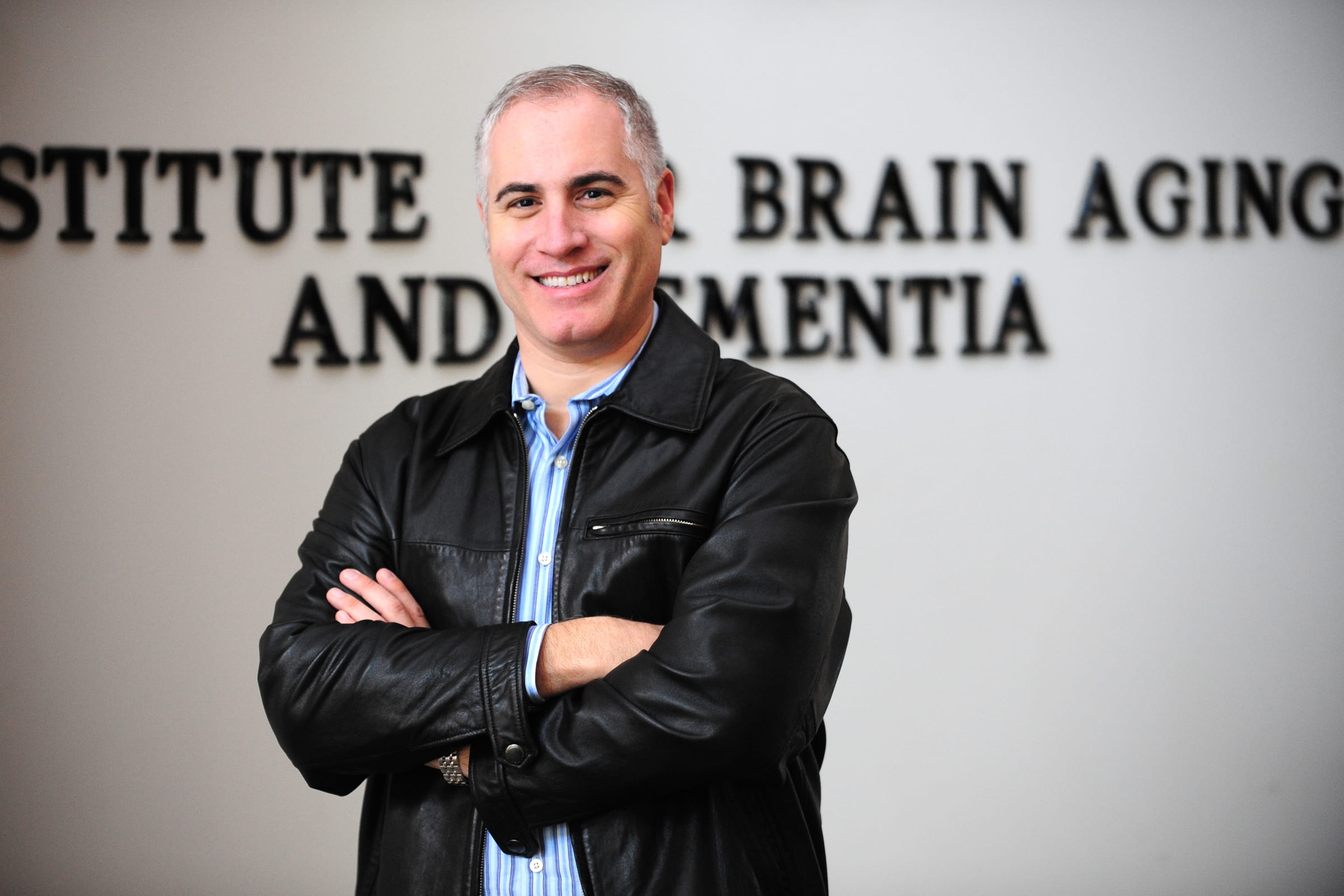Institute for Brain Aging and Dementia gets new chief
Neurobiologist Frank LaFerla is taking the reins of the UC Irvine Institute for Brain Aging & Dementia, hoping to boost clinical offerings and move forward with a new building dedicated to Alzheimer’s disease research.

Neurobiologist Frank LaFerla is taking the reins of the UC Irvine Institute for Brain Aging & Dementia, hoping to boost clinical offerings and move forward with a new building dedicated to Alzheimer’s disease research.
He succeeds founding director Carl Cotman, who built the institute into a thriving multidisciplinary center combining basic science and clinical research in neurology, neurobiology, molecular biology and biochemistry.
LaFerla, Chancellor’s Professor of Neurobiology & Behavior, officially assumed the top post Jan. 1. A recipient of many national awards for his Alzheimer’s research, he has served as center co-director since 2003.
LaFerla already has updated the institute’s Web site and newsletter and partnered with the Center for the Neurobiology of Learning & Memory to sponsor an upcoming brain lecture series.
He also wants to raise money to support patient care; currently, the institute only provides diagnostic services for Alzheimer’s and memory disorder patients. So he hired Linda Scheck, former executive director of the Orange County Alzheimer’s Association, to direct the institute’s community relations and fundraising efforts.
“We are one of the few research units on campus that can translate discoveries at the bench and apply it at the bedside,” LaFerla said. “Currently, our clinical efforts are focused on diagnostic memory assessments, while also providing opportunities to participate in exciting new clinical drug trials and cutting-edge research that will further our understanding about Alzheimer’s disease and interventions. In the future, I hope the institute can expand to offer more patient care services and resources for families.”
That expansion, LaFerla hopes, will include a proposed building devoted to Alzheimer’s research that would enable a tenfold increase in clinical space. “It would allow us to integrate all aspects of basic and clinical research related to neurodegenerative disorders on this campus,” LaFerla said.
LaFerla came to UCI in 1995 as an assistant professor and rapidly rose through the ranks because of his distinguished record of research, teaching and service to the university. He is recognized as one of the leading Alzheimer’s researchers of his generation.
About 5.2 million people nationwide have Alzheimer’s, including 588,000 in California and 60,000 in Orange County. There is no cure for the disease, but several promising drugs in clinical trials could provide symptomatic relief.
“We welcome Frank into his new role and look forward to the next phase of IBAD’s development under his creative leadership,” said Susan Bryant, vice chancellor for research.
The UCI institute is funded by the National Institutes of Health and the California Department of Public Health.